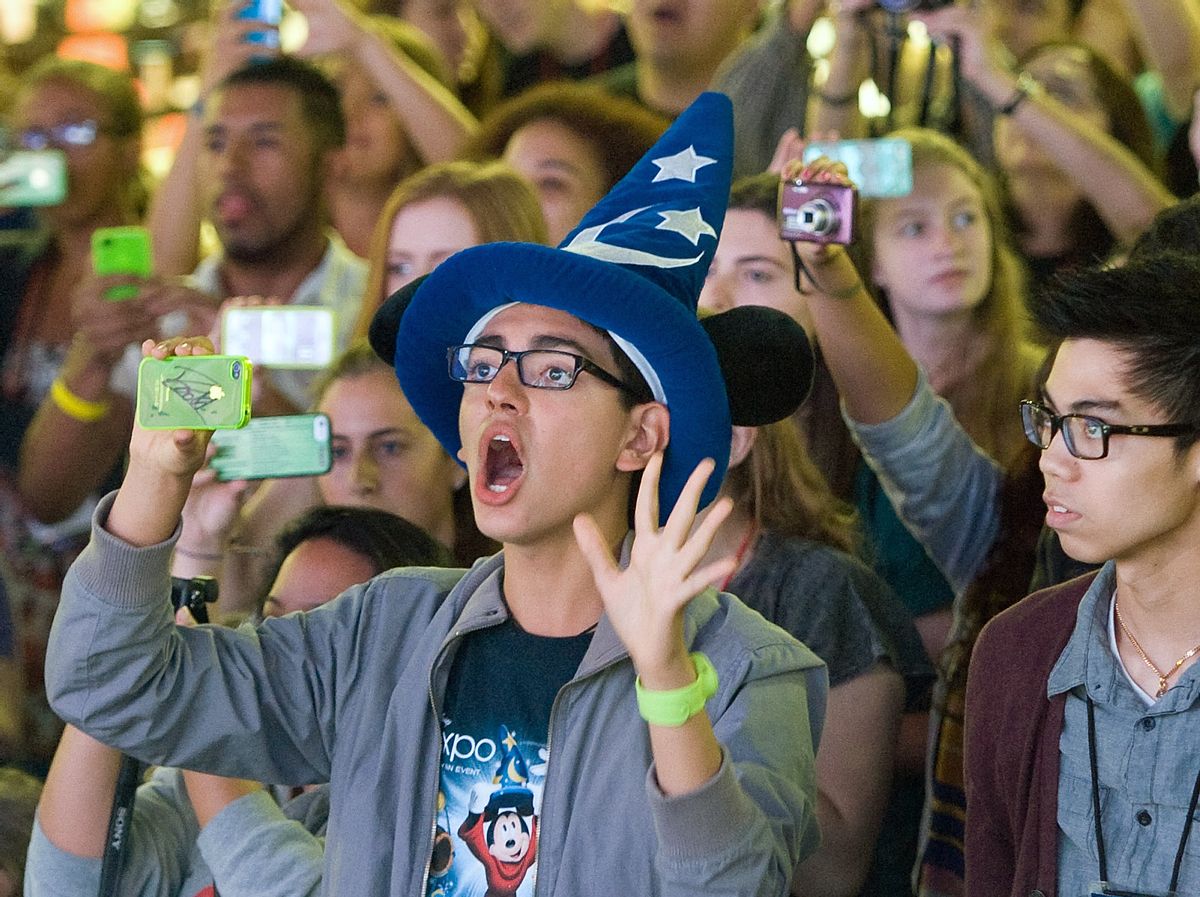For children too young or sick to have received the MMR vaccine -- or whose parents decided for them that they didn't "need" to be vaccinated -- the "happiest place on Earth" has been transformed into something far more sinister.
With at least 51 measles cases linked to initial exposure at Disneyland, the deputy director of California's Center for Infectious Diseases announced that the theme park is no longer safe for the unvaccinated -- the status of over 80 percent of those infected. The outbreak has spread to five states and Mexico, and includes six infants who were too young to have received the vaccine. A full quarter of the patients so far had to be hospitalized. And for 24 unvaccinated children in Orange County, where the theme park is located, school is no longer safe, either: They were told to stay home for three weeks after it emerged that an infected student had shown up on campus earlier this month.
Does that last part sound familiar? Over at the Daily Beast, pseudonym pediatrician Russell Saunders calls out our attention to this past autumn's Ebola panic. Think of what's now happening as the bizarro version of that: Instead of people overestimating their risk of contracting a disease, we're now dealing with a real threat from what, while less deadly than Ebola, is "essentially the most contagious disease on the planet,” as one infectious disease specialist called it -- all because some people underestimated the risk. As Dr. James Cherry, a specialist in pediatric infectious diseases at UCLA, confirmed to the New York Times, the outbreak is “100 percent connected” to Orange County's low immunization rates.
For more on why we desperately need to readjust our expectations, it's worth reading Tara C. Smith on how, contrary to what some anti-vaxxers argue, measles is definitely a big deal. The gist:
What many forget is that we had a massive outbreak of measles in the United States from 1989–1991. While our 644 cases in 2014 seems high compared with recent years, 25 years ago measles incidence spiked to 18,000 cases per year, with a total of more than 55,000 infections before the outbreak began to dwindle. It was the largest measles outbreak in this country since the 1970s.
...Despite our advances and our modernity and our status as a developed country, we still saw 123 measles deaths during this epidemic—here, in the United States, where we get plenty of Vitamin A. There were also 11,000 hospitalizations—fully one-fifth of people infected with measles became sick enough to be hospitalized.
In modern-day America.
Don't expect, in other words, that modern medical advances will protect us from the ravages of measles -- vaccines are the modern medical advancement that were doing a fine job of things until the misguided decisions of a few sacrificed the protection of herd immunity for all of us. If anything, the rapid emergence of antibiotic-resistant superbugs could make a modern-day measles epidemic even deadlier. The continual frustration is that measles was effectively eliminated from this country in 2000, but all it took was enough people buying into the junk science telling them that vaccines aren't safe to give the disease a new foothold. Here's the CDC data on measles' resurgence:

Back when measles was beginning to make its comeback last year, Salon spoke with Stephen Morse, a professor of clinical epidemiology at Columbia University’s Mailman School of Public Health, who predicted that, if the anti-vaxxer craze continues, we'll keep seeing the disease come back. And at a certain point, he added, "I think people will feel very differently" about prioritizing the "risks" of vaccines over those of a major outbreak. Hopefully, we won't have to get to the point where measles is once again endemic in the U.S. for that to happen -- seeing what we've let it do to Disneyland should be the final straw.

Shares